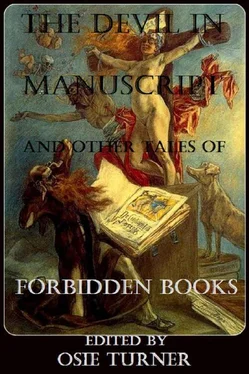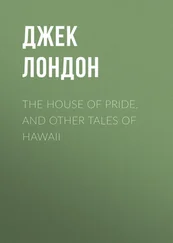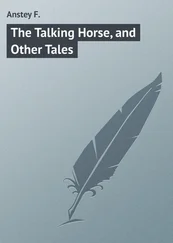“Matter?” he repeated dazedly, shaking his head as though to rid himself of an unpleasant thought. “There’s nothing the matter, Smithers. I’ve been thinking, that’s all.”
“You were in a kind of coma when I first came in.”
He laughed a trifle shamefacedly it seemed to me. “Thoughts carry me away sometimes,” he said in a more natural tone. “They drag my ego out of my body by the hair.” He paused and ran his hand across his forehead. “At least, Martin’s thoughts do,” he finished with a faint smile.
“Martin’s thoughts? Has his new book come out yet? Is that it?” I pointed to the red morocco volume on the arm of his chair.
“Yes, that’s his new book,” Rupert answered. “This is another advance copy. I believe it is to be published in a few days.”
“What’s the title?”
“‘The Confessions of Constantine.’”
“Do you like it as well as ‘Many Murders’?”
“Like it?” he cried with a nervous start. “That’s scarcely the word, Smithers. You can’t like a book of this kind—you can only marvel at it!”
“Own up now, Rupert,” I said quickly, thinking that the man was quibbling to defend his idol. “Own up, this book has fallen below your expectations. In a word, it disappoints you.”
“Good Lord, no!” he cried almost fiercely. “If ‘Many Murders’ were a masterpiece, ‘The Confessions of Constantine’ is a super-masterpiece! It is so great that one fears it; so great that it conquers one’s mind! Can there be such a thing as hypnotic writing, Smithers?”
“Of course not,” I answered irritably. “The trouble with you is that you’re mentally sick. What you need is a long vacation somewhere. Why don’t you go home for a month or so?”
“Perhaps I will,” he muttered. “Perhaps I will.” He picked up the book and began to turn the leaves. “I know I ought to go home,” he added a trifle wistfully.
“Have you forgiven Hubbard yet?” I asked, turning toward the door. “Or have you found out that he wasn’t responsible for that Christmas present?”
But Farrington did not answer me. Evidently he had once more become engrossed in Martin’s new book. Oblivious to everything about him, he sat with a strange, rigid attention, slowly turning the leaves. And, as I glanced back at him over my shoulder, it seemed to me that his face suddenly underwent a change—that the whites of his eyes were suffused with blood; that the veins in his forehead became black and bulging; that his moist, red lips puffed out at each long breath. And I left him thus, alone with “The Confessions of Constantine.”
Martin’s new book was published the following week. If his first volume had caused a breeze of public comment, his second created a whirlwind. Those who were unfortunate enough to have read “The Confessions of Constantine” before it was suppressed by the government, can still remember the terrifying sensations with which it inspired them. Sir Vivian Gerard aptly phrased it in a newspaper article which ended in these words:
“I trembled when I read ‘Many Murders’ as though I were actually witnessing the terrible crimes which it described; but when I perused ‘The Confessions of Constantine,’ my hand was steady and my brain on fire with the blood lust of the murderer as he strikes the fatal blow. I felt no repulsion at the savagery of it; only the great, unholy joy of brute rage. I cannot criticize this book; I can only wonder at it.”
It was shortly after “The Confessions of Constantine” made its appearance that the still well-remembered crime wave swept New York from end to end. The police fought valiantly to hold it in check, but failed. In vain they made countless arrests; new murderers sprang up on all sides. It was as though it were some kind of contagious disease—a “murder microbe” as some learned fool maintained.
One afternoon, while this dangerous plague was at its height, Wilbur Huntington dropped into the studio on his way to the Cap and Gown Club. I was delighted to see him and stopped work for a time to chat.
“Well, what do you think of this murder scourge we’re having?” I asked, laying my brush aside.
“It’s rather interesting, don’t you think?” he said, half closing his eyes. “I see you have a new bolt on your door, Charley.”
“Yes,” I answered, flushing slightly. “One has to nowadays. Bolts and locks are the fashion. They tell me the chief of police has himself guarded like a feudal baron.”
“Strange that everyone should be murdering someone,” Huntington continued, his nose twitching slightly. “But seriously, Charley, the baffling fact about these crimes is the manner in which they are perpetrated.”
“What do you mean?”
“I mean just that. A man goes out and murders someone without any real reason and without any skill. Murder is committed everywhere these days; and no one seems to care whether he’s found out or not. Murder used to be shrouded in mystery; now it walks brazenly in the sunlight, inviting the attention of any passerby. Do you know how many murderers gave themselves up last week?”
“No. How many?”
“Forty-nine. Forty-nine out of fifty! And they all seem proud of it! That’s strange, isn’t it, Charley?”
“Yes, it is,” I answered. “It would seem that Professor Knolls might be right about the murder microbe.”
Huntington threw back his head and laughed. “No, I think not, Charley,” he said. “But what does your friend Martin say about all this?”
“How should I know? I haven’t seen him now in nearly two years.”
“You haven’t, eh?” Huntington settled back on the lounge and closed his eyes. “What’s the matter with that Farrington fellow?” he asked after a pause. “Nothing, that I know of. Why?”
“I just met him as I was coming up the street. He seemed to be in a devilish hurry—his face red as a beet, his eyes staring. He looked as if he had gone dotty. I shouted to him, but he didn’t seem to hear me—just went scooting by on those long legs of his. He left me staring, I can tell you.”
“Rupert hasn’t been himself lately,” I hastened to explain. “You’ve got to make allowances for the poor fellow. All his life he’s tried to become a famous poet and he’s no further advanced now than he was ten years ago.”
“That’s a shame!” Huntington muttered. “I never knew he had worked so hard. Isn’t there anything we could do for him—bribe some publisher to bring out his poems, for instance?”
“I’m afraid that wouldn’t do any good,” I answered. “You see, he really hasn’t got the stuff. It would be a mistaken kindness. What he ought to do, would be to—”
“Who’s that laughing in the hallway?” Huntington broke in suddenly. “That’s a devil of a racket! Have you got a crazy man about the premises?”
“I don’t hear anything. You must be mistaken.”
But Huntington cautioned me to silence with a lifted finger. “Listen!” he whispered.
Then I heard it. And what a laugh it was, starting deep down in the throat in a kind of horrid chuckling and rising higher and higher till it ended in a dismal howl! Nearer and nearer it came, rising and falling, battering on the eardrums with a savage insistency. Finally the studio door flew open and we caught a glimpse of him who laughed.
Rupert Farrington stood on the threshold, swaying back and forth as though shaken by that inhuman merriment which tore his lips apart. His face was a deep crimson; beneath the flushed skin, all the muscles were aquiver like a handful of worms. But the man’s eyes were what caused me to utter an ejaculation of dismay. The pupils seemed mere pinpoints while the areas of white had grown enormous and were threaded with vivid veins. And as one looked at those eyes, a strange transformation seemed to take place; they were no longer eyes hut spiders—spiders crouching in a crimson web.
Читать дальше












